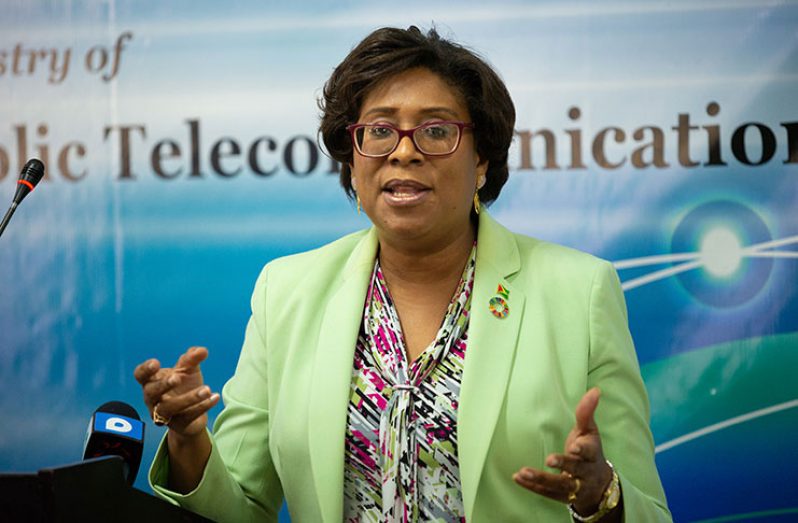THE government has turned to the National Assembly to amend the Interception of Communications Act to include five more exceptions intended to cater for Guyana’s expanding Telecommunication Sector. On Friday, Public Telecommunications Minister, Catherine Hughes, presented the Interception of Communications (Amendment) Bill 2019 to the House for its first reading.
Section Three of the Interception of Communication makes it illegal for a person to intentionally intercept communication in the course of its transmission by means of a telecommunications system. A person who commits such an offence is liable on summary conviction to a fine not exceeding $5M and imprisonment for a term not exceeding three years. However, the section provides for two exceptions.
Section 3:02 states: “A person does not commit an offence under this section if – (a) the communication is intercepted in obedience to a warrant issued by a judge under section Six; (and) (b) the communication is not intercepted in obedience to a warrant issued by a judge under section Six but on the authority of a designated officer in the case of a national emergency or in responding to a case where approval for a warrant is impracticable having regard to the urgency of the case.”
However, the exceptions do not cater to the needs of the expanding Telecommunication Sector, for example: call centers. As such, the amendment tabled in the house is intended to include five more exceptions that would cater for their operations.
“The Bill seeks to provide more exceptions, including, if the person has reasonable grounds for believing that the person to whom or by whom the communication is transmitted consents to the interception, or if the communication is not a private telecommunication etc. These exceptions can be found in most similar legislation across the region,” the explanatory memorandum states.
Among the five proposed exceptions, one caters for the interceptions done by telephone companies and call centers. For this exception, the “communication is intercepted as an ordinary incident in the course of employment in the provision of telecommunication services.”
This amendment will also provide for the interception of a communication transmitted by a private telecommunication network and is done by a person who has a right to control the operation or use of the network or the express or implied consent of the person whom or by whom the communication is transmitted.




.png)









